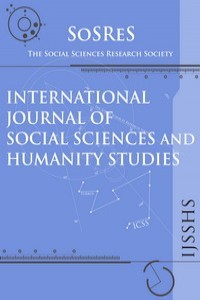CLIMATE CHANGE AND SOUTH ASIAN ASSOCIATION FOR REGIONAL COOPERATION: A REGIONAL RESPONSE
CLIMATE CHANGE AND SOUTH ASIAN ASSOCIATION FOR REGIONAL COOPERATION: A REGIONAL RESPONSE
Climate Change, South Asia SAARC,
___
- Ulka Kelkar and Suruchi Bhadwal (2007/2008), South Asian Regional Study on Climate Change Impacts and Adaptation: Implications for Human Development, Human Development Report. Anthony Giddens (2011), The Politics of Climate Change, Polity press, Cambridge.
- Oxfam GB (2009a) Overcoming Social Exclusion, Climate Poverty and Conflict Vulnerability in South Asia, Oxfam GB South Asia Regional Vision and Strategy 2009-2012.
- Oxfam GB (2009c) Nepal National Change Strategy 2009-2013, Oxfam GB, Abbass, Z. (2009) Climate Change, Poverty and Environmental Crisis in the Disaster Prone Areas of Pakistan, Islamabad, Pakistan.
- Parry, M.L. et al. (eds.) (2007) Climate Change 2007: Working Group II – Impacts, Adaptation and Vulnerability, Contribution of Working Group II to the Fourth Assessment Report of the Intergovernmental Panel on Climate Change (IPCC), 2007, Cambridge, United Kingdom and New York, NY, USA: Cambridge University Press, Cambridge. Oxfam GB (2009b) South Asia Regional Vision and Change Strategy External Context Analysis: Poverty and Inequality in South Asia.
- National Adaptation Programme of Action (NAPA), Republic of Maldives, Ministry of Environment, Energy and Water, 27 December 2006.
- Stern, N. (2006), The Economics of Climate Change-The Stern Review, HM Treasury, London.
- Climate Change 2007: IPCC Fourth Assessment Report, IPCC, Geneva, Switzerland, 2007.
- SAARC Environment Action Plan (Male, 15-16 October 1997).
- SAARC Action Plan on Climate Change was adopted on 3 July 2008.
- United Nations Framework Convention on Climate Change, May 9, 1992, 1771 U.N.T.S. 107 (entered into force March 21, 1994).
- Nayana Mawilmada (2010), National Climate Change Adaptation Strategy for Sri Lanka 2011-2016, Ministry of Environment.
- Ali Azimi and David McCauley (2003), Afghanistan’s Environment in Transition (Asian Development Bank).
- Wiseman, K. and R.P. Chhetri (2011) Governance of Climate Change Adaptation Finance in Nepal: Country Brief, Oxfam International.
- Charlotte Sterrett (2011), Review of Climate Change Adaptation Practices in South Asia, Oxfam Research Reports, Climate Concern, Melbourne, Australia.
- UN General Assembly (2009), Climate change and its possible security implications: Report of the Secretary-General.
- Başlangıç: 2009
- Yayıncı: Sosyal Bilimler Araştırmaları Derneği
DEPOSIT INSURANCE SYSTEM: AN EXPOSITION FOR THE ISLAMIC BANKS IN MALAYSIA
Sharifah Adlina Syed ABDULLAH, Rubi AHMAD
CHILD ABUSE IN MALAYSIA: LEGAL MEASURES FOR THE PREVENTION OF THE CRIME AND PROTECTION OF THE VICTIM
Saving Investment Correlations and Capital Mobility: Evidence from Transition Economies
TWO STRATEGIC SUCCESS FACTORS FOR FIRM LEVEL COMPETITIVENESS: INNOVATION AND COOPERATION
Mehmet DENİZ, Şeyda Nur SEÇKİN, Mehmet CÜREOĞLU
THE EFFECT OF THE SUB-PRIME CRISES ON WORKPLACE SAFETY IN HUNGARY BASED ON A PRIMARY RESEARCH
Ágnes Csiszárik-Kocsir, Mónika Fodor, András Medve
DIAGNOSTICS OF RUSSIAN CONSUMER MARKET STATE IN TERMS OF DESTRUCTIVE EFFECTS INFLUENCE
MODEL OF HYPOTHECATED TAX ON INFORMATION GOODS
WEIGHT SYSTEMS IN A CPI ANALYSIS
THE UNDERSTANDING OF RESILIENCE AND THE ROLE OF ENTREPRENEURSHIP IN ITS IMPLEMENTATION
Zarina VİTA, Strele IVETA, Fogelmanis KASPARS, Lingeberzins ERİKS
